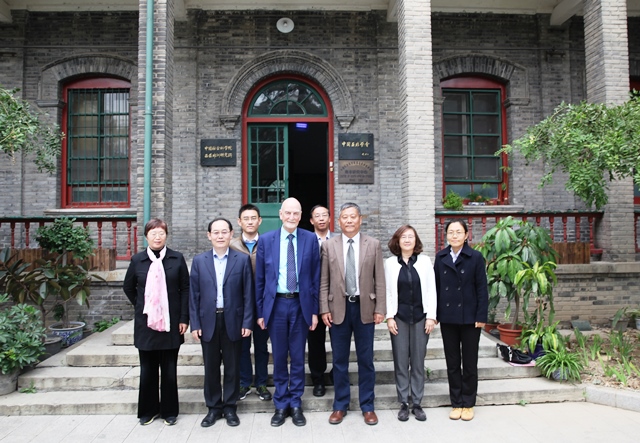Professor Timothy C.Niblock Was Invited to Give a Lecture in IWAAS

On the morning of October 15th, 2018, Professor Timothy C. Niblock from the University of Exeter, a famous expert on Middle East Studies, was invited to present a lecture on “Conflicts in the Gulf: Explanations of the roots” at the No.1 meeting room in Institute of West-Asian and African Studies (IWAAS). This academic lecture was co-organized by the advanced research project of Chinese Academy of Social Sciences (CASS), “Modern Middle East Studies” (led by Professor Wang Lincong) and Gulf Research Center of CASS. Professor Yang Guang, former director of IWAAS, president of Chinese Association for Middle East Studies (CHAMES), hosted the lecture in which over 20 scholars and graduate students from IWAAS participated, including professor Wang Lincong, assistant of general director of IWAAS, director of Division of International Relations Studies of IWAAS, professor Yu Guoqing, associate professor Wang Feng, deputy director of Division of International Relations Studies, associate professor Liu Dong, deputy director of Division of Middle East Studies.
In the lecture, Professor NIiblock hold that the roots of the conflicts in the Gulf and Middle East came from inside, mainly concerning the underdevelopment of the region, countries’ insecurities and many other factors that affected regional stability. Countries in the Gulf and Middle East, overall, was underdeveloped, in which few elites had benefited a lot while the general public gained little and a large number of the youth were unemployed. However, neither the ruling classes nor ordinary people fully consider the youth’s predicaments and anxieties caused by unemployment. Different levels of insecurities of countries in different historical periods, which sometimes rose from inside and sometimes from outside, also fueled the conflicts in the Gulf. Besides, the Gulf countries’ internal power struggles, short-sighted policies on dealing with relations with some social political forces, such as the Muslim Brotherhood, were also roots of regional instability.
And then professor Niblock further elaborated the specific forms and disparities of above-mentioned three factors in different historical periods and in different levels by taking Saudi Arabia, UAE and Qatar as examples.
At the end of the lecture, experts from IWASS had discussions and dialogues with professor Niblock on some hotspot issues, including the change of regional order, the role and prospect of GCC, powers’ influence on the Gulf situation, “Arab NATO” proposed by the Trump Administration, Iran’s influence on Iraq’s security situation and India’s Middle East polices. The lecture and academic exchange were held successfully with excellent results.